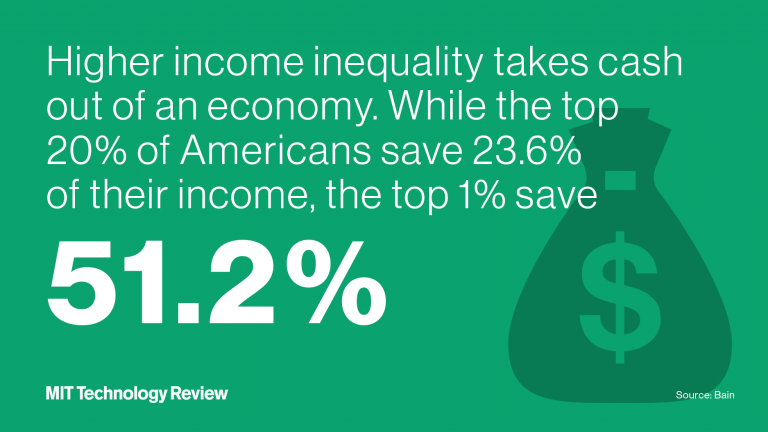A new study by Bain & Company found that automation could exacerbate inequality in the US.
Why? The study shows that automation will disproportionately hit middle- and low-income jobs. Its benefits—such as productivity gains and new investment—accrue mainly to highly skilled workers and large companies. (This “winner-take-all” effect has been known for a while.)
The more you earn, the more you save: As more income shifts to the top earners, who save more of it, less of money goes back into the economy.
What this means for growth: The savings will be funneled into investment, which will temporarily boost economic growth. But as the report says, “This growth isn’t based on effective demand and actually creates a misleading signal about how sustainable it is.” Eventually demand-led growth stops altogether, or even reverses, leading to “deeply unbalanced economies,” says the report.
Want to stay up to date on the future of work? Sign up for our newest newsletter, Clocking In!

